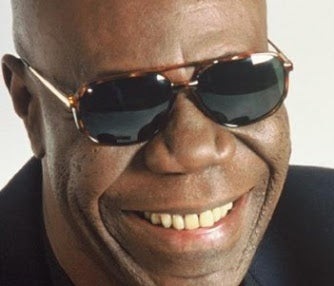Manu Dibango wiki, bio, age, died, corona virus, wife, music

Manu Dibango who intertwined African rhythms with funk to get one of the most powerful artists in the world move music has kicked the bucket with the coronavirus.
Emmanuel N'Djoké Dibango was a Cameroonian performer and lyricist who played saxophone and vibraphone. He built up a melodic style intertwining jazz, funk, and customary Cameroonian music. His dad was an individual from the Yabassi ethnic gathering, however, his mom was a Duala.
Manu Dibango, who combined African rhythms with funk to get one of the most compelling artists in the world move music, kicked the bucket Tuesday with the coronavirus, as indicated by his music distributor.
Manu Dibango Age
Manu Dibango was 86 years of age. He was conceived on December 12, 1933, in Douala, Cameroon.
Early Life
Dibango was conceived in 1933 in Douala, Cameroon. He went to secondary school in France and started learning instruments: first the piano, at that point saxophone – for which he turned out to be most popular – and vibraphone.
"The blacks that we saw [in France] were either fighter like Sugar Ray Robinson – or jazzmen," he recalled in a 2018 meeting. "Thus, we wound up going down to the basements in Paris, where we could see the [Louis] Armstrongs and the Count Basies with whom we recognized."
He moved to Brussels and visited Europe with Africa Jazz under bandleader Joseph Kabasele, and invested energy in Congo and Cameroon before coming back to Paris in 1965.
He mixed the cosmopolitan styles from Africa and Europe into his own combination, bringing about his greatest hit, Soul Makossa, with a bursting saxophone line over a breakbeat and Dibango's verbally expressed vocals, initially composed for the 1972 African Cup of Nations football competition.
Profession
He was an individual from the original Congolese rumba gathering, African Jazz, and has worked together with numerous different artists, including Fania All-Stars, Fela Kuti, Herbie Hancock, Bill Laswell, Bernie Worrell, Ladysmith Black Mambazo, King Sunny Adé, Don Cherry, and Sly and Robbie.
He accomplished an extensive following in the UK with a disco hit called "Huge Blow", initially discharged in 1976 and re-blended as a 12″ single in 1978 on Island Records.
In 1998, he recorded the collection of CubAfrica with Cuban craftsman Eliades Ochoa. At the sixteenth Annual Grammy Awards in 1974, he was assigned in the classifications Best R&B Instrumental Performance and Best Instrumental Composition for "Soul Makossa".
The melody "Soul Makossa" on the record of a similar name contains the verses "makossa", which implies "(I) move" in his local tongue, the Cameroonian language Duala. It has impacted well-known music hits, including Kool and the Gang's "Wilderness Boogie".
The 1982 spoof melody "Boogie in your butt" by entertainer Eddie Murphy introduces Soul Makossa's bassline and horn outlines while "Butt Naked Booty Bless" by the 1990s hip-bounce bunch Poor Righteous Teachers intensely tests its melodic extension and drum designs.
The line "mom state, mother sa, mama makossa" from Michael Jackson's Wanna Be Startin' Somethin' was lifted from Dibango's melody on Soul Makossa – Dibango sued Jackson over the uncredited introduction, winning an out of court settlement.
In 2009, he indicted Jackson again alongside Rihanna, whose track Don't Stop the Music additionally utilizes the tune line, however, the objection was regarded as prohibited.
Dibango proceeded to visit generally off the rear of the track's prosperity, and teamed up with Hugh Masekela, Fela Kuti, Herbie Hancock and then some. His tracks were additionally inspected by specialists including Busta Rhymes and the Chemical Brothers.
Reason for Death
Manu Dibango, the Cameroonian artist celebrated for his mix of jazz, funk and customary west African styles has kicked the bucket matured 86 out of a Paris clinic subsequent to contracting Covid-19.